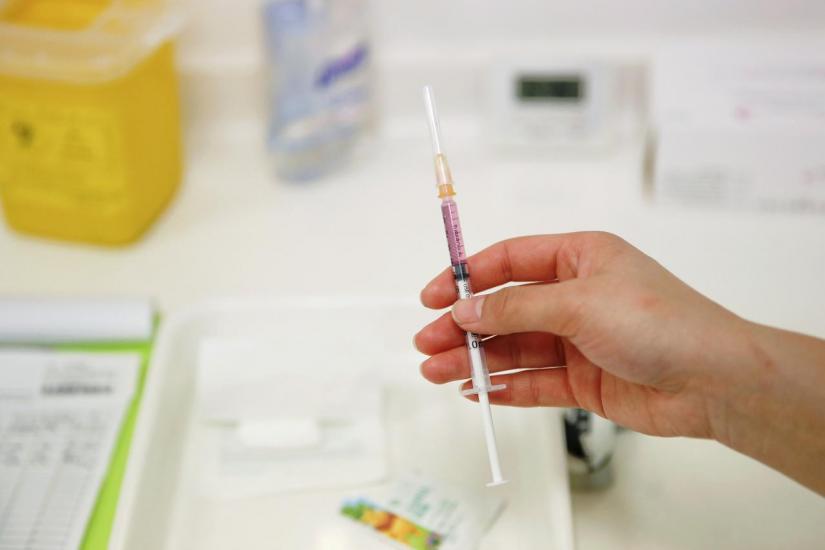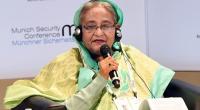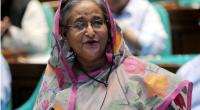 According to the world's biggest survey on public attitudes toward health and science, which was published on Wednesday (Jun 19), Bangladesh and Rwanda had the highest levels of confidence in vaccines, while France has the lowest, reports BBC.
According to the world's biggest survey on public attitudes toward health and science, which was published on Wednesday (Jun 19), Bangladesh and Rwanda had the highest levels of confidence in vaccines, while France has the lowest, reports BBC.
Both Bangladesh and Rwanda agreed with almost 100% votes that vaccines were safe, effective and important for children to have.
The survey of people aged 15 and older was devised by Wellcome, a British medical charity and conducted by Gallup World Poll between April and December 2018.
It found that people living in high-income countries have the lowest confidence in vaccines, a result that ties into the rise of the anti-vaccination movement, in which people refuse to believe in the benefits of vaccinations or claim that the treatment is dangerous.
The biggest global study into attitudes on immunisation suggests confidence is low in some regions.
In France - a country among several European ones now experiencing outbreaks of measles - one in three disagreed that vaccines were safe, according to the survey. That was the highest percentage for any country worldwide.
People in France were also among the most likely to disagree that vaccines were effective, at 19%, and to disagree that vaccines were important for children to have, at 10%.
Neighbouring Italy - where 76% agreed vaccines were safe - recently passed a law that allows schools to ban unvaccinated children, or fine their parents, after immunisation rates dwindled.
The UK has yet to go this far but Health Secretary Matt Hancock has told BBC he "won't rule out" the idea of introducing compulsory vaccinations if necessary.
US has also been experiencing its own measles outbreak - the biggest to hit the country in decades, with more than 980 confirmed cases in 26 states in 2019 to date.
In Northern America and Southern and Northern Europe, just over 70% of people agreed that vaccines were safe.
The figure was as low as 59% in Western Europe, and 50% in Eastern Europe.
In Ukraine, which reported the highest number of measles cases in Europe last year (53,218 in total) - only 50% of people agreed vaccines were effective. This figure was 46% in Belarus, 49% in Moldova, and 62% in Russia.
Most people in lower-income areas agreed vaccines were safe. The highest number was in South Asia, where 95% of people agreed, followed by Eastern Africa, where the figure was 92%.
Bangladesh and Rwanda had nearly universal agreement about the safety and effectiveness and have achieved very high immunisation rates despite many challenges in physically getting vaccines to people.
Rwanda became the world's first low-income country to provide young women universal access to the HPV vaccine that protects against cervical cancer.
In the survey, people with more trust in scientists, doctors and nurses tended to be more likely to agree that vaccines were safe. Conversely, those who had sought information about science, medicine or health recently appeared to be less likely to agree.
The Wellcome report does not explore all of the reasons behind low confidence but researchers say there are likely to be many factors involved.
Some of it may be complacency - if a disease has become less common, then the need to get immunised may feel less pressing when weighing the benefits against any possible risk.
All medicines, vaccines included, can have side-effects. But vaccines are thoroughly tested to check they are safe and effective.
The internet means beliefs and concerns about vaccines can be shared in an instant, spreading information that isn't necessarily based on fact.
In Japan, concerns about the HPV vaccine and a reported link with neurological problems were widely publicised, which experts think knocked confidence in immunisation in general.
Similarly, in France, there was controversy about a pandemic influenza vaccine - accusations that the government bought high quantities of the vaccine and unsubstantiated claims that it had been made too quickly and couldn't be safe.
In the UK, there has been misinformation circulating about the MMR jab and autism.
The Wellcome Trust analysis includes responses from more than 140,000 people in over 140 countries.
The World Health Organization lists vaccine hesitancy as one of the top 10 threats to global health.


